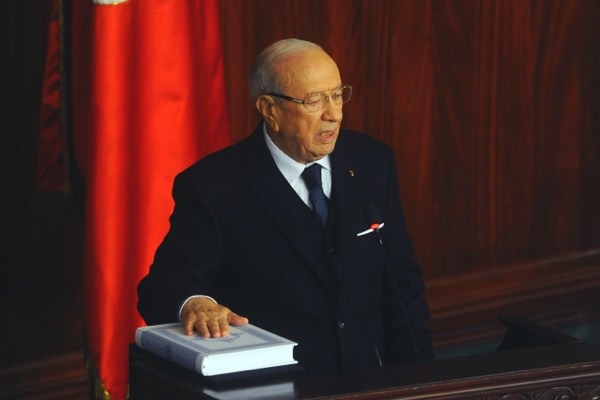Editor’s Note: This is the first of a two-part briefing on Tunisia’s elections. Part I looks at the state of democratic transition with the rise of the Nedaa Tunis party. Part II will focus on economic issues and whether Tunisia’s progress is sustainable.
Tunisians are making history again. The birthplace of the Arab Spring seems to be setting itself up to be the home of Arab democracy, pluralism and peaceful transition—and a model for the entire Arab world. Last month, for the first time since its independence from France in 1956, Tunisia successfully held competitive parliamentary and presidential elections—praised by international observers as transparent. While the secular Nedaa Tunis party won a plurality in parliament and its leader, 87 year-old Beji Caid Essebsi, was elected president with 55.68 percent of the votes, the real winner of these elections is Tunisia.
On paper, the country has completed its transition since the popular overthrow of President Zine El Abidine Ben Ali four years ago, with a new constitution, transitional justice law and political environment that has allowed new parties to form and compete fairly in elections—a far cry from Ben Ali’s one-party system. It has also survived political crises that threatened to derail progress, most importantly the 2013 assassinations of two influential members of parliament, Chokri Beleid and Mohamed Brahmi. With the help of a robust civil society, Tunisians managed to forge compromises and avoid the pitfalls of their neighbors. But now their leaders have to think about the sustainability of their accomplishments and, most importantly, delivering results to those who launched the uprising against Ben Ali.

